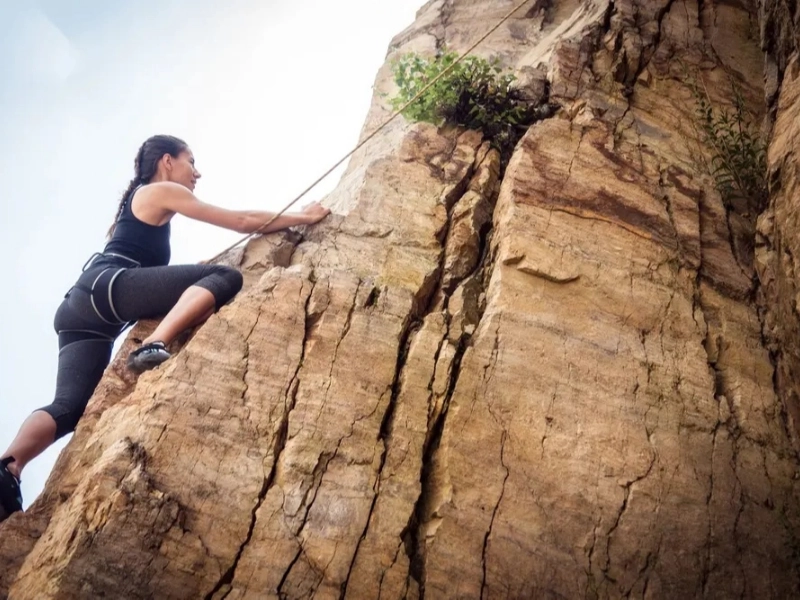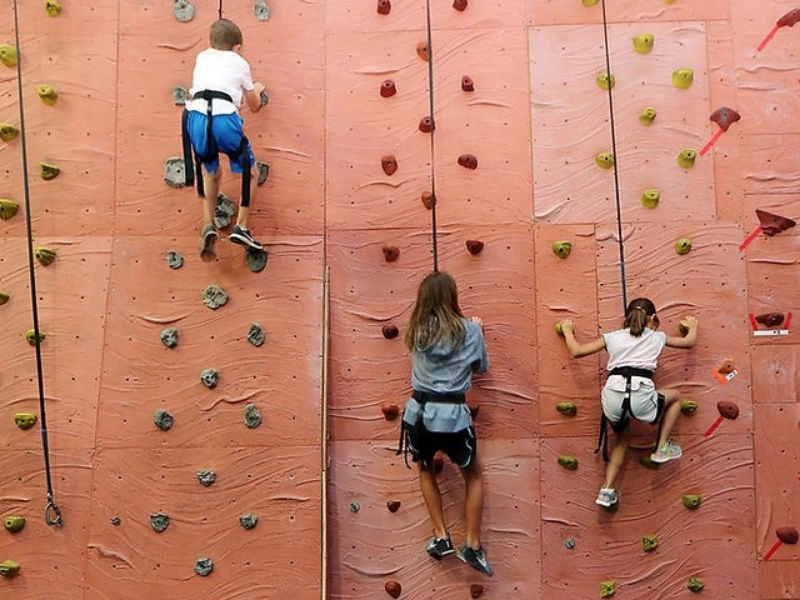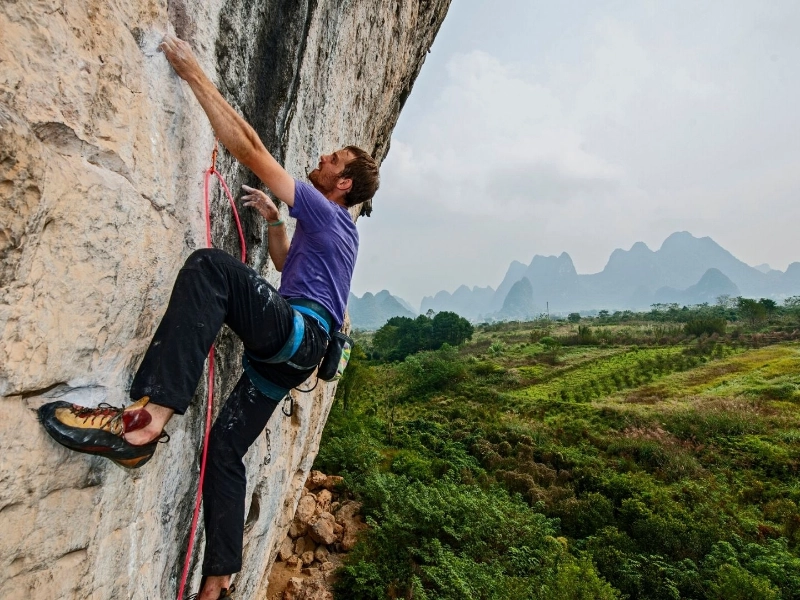The activity of climbing is quite demanding on the body and mind. It's an excellent method to push yourself beyond your comfort zone and challenge your boundaries. It also calls for a great deal of problem-solving. This explains why climbing routes are referred to as "problems." For climbers, the reward of solving a challenge is what keeps them going back. It is a sense of achievement that comes from consistent practice only.

 Rock climbing is the ideal activity to help conquer a fear of heights. In the process, you'll gain a strong sense of confidence and learn how to push yourself beyond your comfort zone.
Fear of falling is a common occurrence among climbers and is quite normal. But this fear might become problematic when a climber is not in a safe environment. Since falling can be a distressing event, it's critical to practice the fall control technique.
Even though many of the strongest climbers are terrified of falling, they nonetheless push through their concerns and go for what they want. Climbers need to train both their bodies and minds to succeed. They must also keep in mind that the trip is more important than the end point. Put another way, a skilled climber understands that every setback serves as a teaching opportunity.
Rock climbing is the ideal activity to help conquer a fear of heights. In the process, you'll gain a strong sense of confidence and learn how to push yourself beyond your comfort zone.
Fear of falling is a common occurrence among climbers and is quite normal. But this fear might become problematic when a climber is not in a safe environment. Since falling can be a distressing event, it's critical to practice the fall control technique.
Even though many of the strongest climbers are terrified of falling, they nonetheless push through their concerns and go for what they want. Climbers need to train both their bodies and minds to succeed. They must also keep in mind that the trip is more important than the end point. Put another way, a skilled climber understands that every setback serves as a teaching opportunity.
 Climbers adore the feeling of success they get from sending a problem, which is climber jargon for a successful ascent. They also take pleasure in watching how they develop over time. Creating memories like these with loved ones can be quite beneficial.
Rock climbing is a close-knit sport that has helped many people meet their lifelong companions. Everyone in the community is incredibly friendly and eager to lend a hand or provide guidance. Climbing etiquette is vital to observe because there are guidelines that need to be followed in order to stay safe.
Rock climbing is an extremely difficult sport that calls for mental and physical toughness. It teaches you how to trust yourself and is a terrific method for developing trust with others. Research has demonstrated that engaging in rock climbing can enhance one's mental resilience and assist in navigating difficult circumstances. Additionally, it can assist you in fulfilling the ACSM's guidelines for neuromuscular exercise.
Climbers adore the feeling of success they get from sending a problem, which is climber jargon for a successful ascent. They also take pleasure in watching how they develop over time. Creating memories like these with loved ones can be quite beneficial.
Rock climbing is a close-knit sport that has helped many people meet their lifelong companions. Everyone in the community is incredibly friendly and eager to lend a hand or provide guidance. Climbing etiquette is vital to observe because there are guidelines that need to be followed in order to stay safe.
Rock climbing is an extremely difficult sport that calls for mental and physical toughness. It teaches you how to trust yourself and is a terrific method for developing trust with others. Research has demonstrated that engaging in rock climbing can enhance one's mental resilience and assist in navigating difficult circumstances. Additionally, it can assist you in fulfilling the ACSM's guidelines for neuromuscular exercise.
 Rock climbing is a sport that calls for self-control and mental toughness. It also helps you acquire the necessary life skills to deal with fear, worry, and dissatisfaction. It's also a fantastic method to sharpen your concentration and focus.
For all people, climbing can be a fulfilling experience. However, the true payoff comes from discovering how to overcome obstacles and step beyond your comfort zone. There will be moments when you feel scared, furious, and frustrated, whether you're climbing an indoor or outdoor rock wall, but if you get over those emotions, there's no feeling like the sense of success you get.
When you begin to feel tense or nervous, try to visualize a peaceful area to help you relax. When you need a short boost, you may more easily conjure up its sights, sounds, and smells if you create this image ahead of time. You can utilize this method at home, during a break from climbing, or even before the climb.
Rock climbing is a sport that calls for self-control and mental toughness. It also helps you acquire the necessary life skills to deal with fear, worry, and dissatisfaction. It's also a fantastic method to sharpen your concentration and focus.
For all people, climbing can be a fulfilling experience. However, the true payoff comes from discovering how to overcome obstacles and step beyond your comfort zone. There will be moments when you feel scared, furious, and frustrated, whether you're climbing an indoor or outdoor rock wall, but if you get over those emotions, there's no feeling like the sense of success you get.
When you begin to feel tense or nervous, try to visualize a peaceful area to help you relax. When you need a short boost, you may more easily conjure up its sights, sounds, and smells if you create this image ahead of time. You can utilize this method at home, during a break from climbing, or even before the climb.